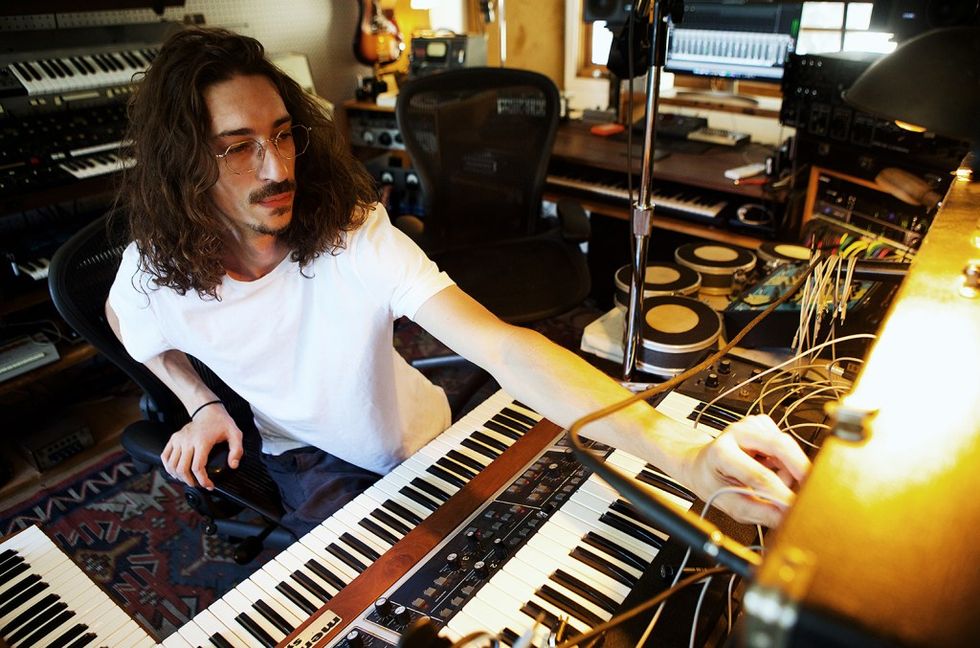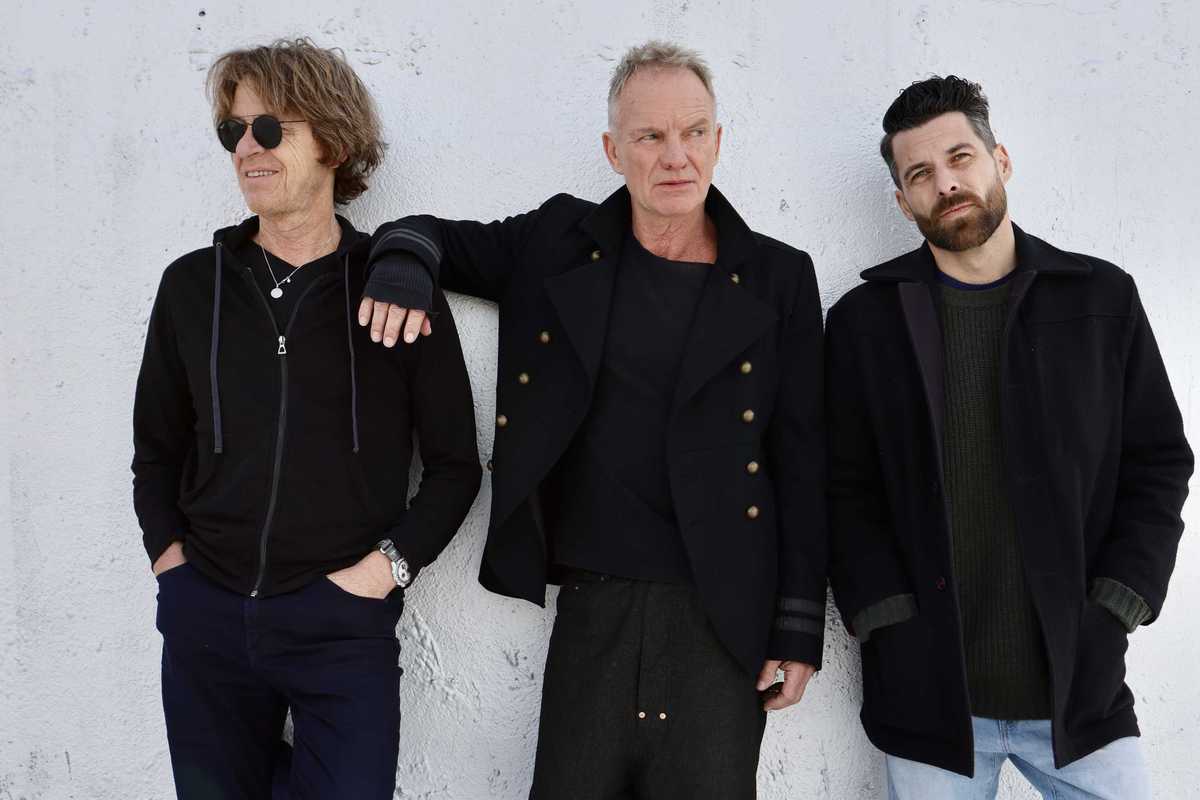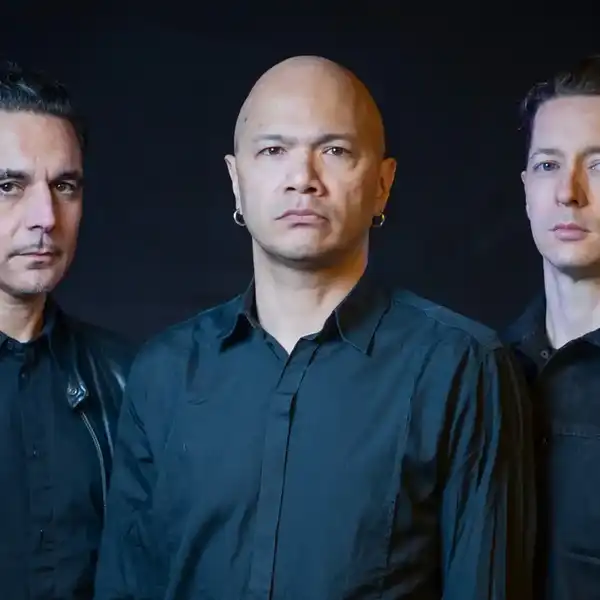Meet SZA’s Secret Weapons: Her ‘SOS’ Producers
How Rob Bisel, Carter Lang and ThankGod4Cody worked together to help SZA craft her seismic second album.

SZA
When producers Carter Lang and ThankGod4Cody worked on SZA’s culture-shifting 2017 debut album, Ctrl, the vibes were cozy and casual.
“We’d all bunker up and pretty much camp out in the stu’ and just be making stuff for weeks, if not months, at a time. Those adventures bonded us for life,” says Lang, 32. Adds Cody, 31: “I don’t even remember what the ultimate goal was except for making a fire album.”
But that “fire album” — one that’s still sizzling on the Billboard 200, 329 weeks after it debuted at No. 3 — created lots of unpredictable “pandemonium,” Lang says, from fans and the industry, and substantially raised the stakes for SZA, who waited five years before she released its follow-up, SOS.
“There was a little pressure to help her complete the tasks that she had at hand and for her to be happy with the final product and not have a sophomore slump,” Cody says. Yet re-creating Ctrl’s mellow, free-flowing and dependable environment was crucial to ensuring the artist felt comfortable enough to produce another masterpiece. Upon its release, SOS spent 10 nonconsecutive weeks at No. 1 on the Billboard 200, bolstering SZA’s superstar status. She earned her first Billboard Hot 100 No. 1 with “Kill Bill,” which she made with Lang and Rob Bisel, 31, both of whom also worked on other SOS top 10 hits “Good Days,” “Nobody Gets Me” and “I Hate U” (the lattermost of which Cody also co-wrote and co-produced).
“The three of us are the people she probably would trust the most to finish the music and bring it home,” says Cody, who with Lang and Bisel has credits on 19 of SOS’ 23 songs. “I feel like we all were involved in everything, except the artwork. It was like a group project in college.”

Cody met SZA in 2014, when he was working closely with her Top Dawg Entertainment labelmate Isaiah Rashad, after she heard Cody making a beat in the room next door, came in and spontaneously recorded the song “Sobriety.” A year later, Lang — who had been working with R&B and hip-hop artists from his Chicago hometown like Chance the Rapper and Ravyn Lenae — ran into SZA at a studio and soon after joined her band while she toured her third EP, Z. He eventually met Cody at TDE’s Carson, Calif., headquarters while working on Ctrl.
Around Ctrl’s release, Bisel briefly met SZA while she was recording at Rick Rubin’s Malibu, Calif., studio, Shangri-La, where he had worked his way up from intern to house engineer. The two eventually reconnected at the beginning of 2020, when he flew out to Rubin’s house in Hawaii to help her record SOS. The album was not only made all over the place — from Lang’s Glendale, Calif.-based studio to SZA’s Malibu home to Westlake Recording Studios — but also with a variety of other producers, like Jay Versace, Michael Uzowuru and even Babyface.
“Back in the day, it would be Timbaland or Pharrell [Williams] and one person, or just them. Now it’s you and six other people, and you might figure out that there are two other people you had no idea about afterward,” Cody explains. “You have to be comfortable with collaboration. It’s a must at this point.”
Set the scene when you’re working with SZA. What’s her creative approach like?
Carter Lang: She takes her time to get in her zone, so it’s about being patient with each other. I can just sit there and jam on something or play beats and not feel like we’re giving any invisible pressure to each other to create. The music can really inspire [her], and she’ll just want to riff on something. It feels more like vibing out around a campfire.
How do you all work with each other and the other collaborators SZA brings into the fold?
Lang: We might be in different places, but the day after, we’ll be in communication about what has happened. We’ll send a track around, or she’ll incubate it. Having our own studios and then being able to converge without having to be in the same place is special, and that was created by our friendships and how fond we are of each other. We trust each other’s voices and what we’re going to put on the track.
Rob Bisel: It was a lot of jamming. [With] “Seek & Destroy,” that was all of us hanging out one afternoon like, “All right, we got to make something more upbeat.” It just felt like everyone was doing one thing at once, and, suddenly, a track fell into place.
Lang: That one was like butter. I stepped out of the room for a second and came back and saw all three of you guys [Cody, Bisel and Tyran “Scum” Donaldson] ripping on your parts. I was like, “OK, this is obviously a crazy moment.”

Are you surprised by SOS’ tremendous success?
Bisel: I knew people would love it, but I didn’t know commercially how that would be reflected. I thought it would do well, but 10 weeks [at No. 1] is insane. I’m still processing that one. There was some stat about Aretha Franklin that we beat [becoming the longest-reigning No. 1 on Top R&B/Hip-Hop Albums by a solo woman, beating out Franklin’s 1968 set, Aretha Now] and that one was like, “Whoa.”
Why do you think “Kill Bill” resonated so much?
Lang: It had this personality to it already. You can just see a cartoon playing out in your brain. The fact that people loved it and lifted it up like that echoes the sentiment of being able to put your thoughts out there in the most authentic and even aggressive way, but over such a sweet-sounding, psychedelic-sounding beat.
Bisel: A pretty common piece of wisdom you’ll hear from producers and songwriters [is], “Make the music that you would want to listen to yourself.” And that was 1,000% the case with that song. The first night we made it, I was like, “Wow, I think we really did something special.” I vividly remember [Cody being] one of the early believers in that song.
ThankGod4Cody: I remember we were talking about how to make [the title] appropriate. (Laughs.)
Bisel: I remember thinking, “I wonder if we need to give this a more on-the-nose title, like ‘Kill My Ex’ or something.” But the more we lived with the “Kill Bill” title, I was like, “Ah, this feels cool. I think it’ll stick with people.”
It’s fascinating how cohesive the album is, given how stylistically different the tracks are. How were you able to balance them out?
Cody: Even though it is different, it’s still all of us. We all listen to everything, including her. We’ll come back and be playing new music that each other has found, and it’s the most random music you’ll probably ever hear.
Bisel: But at the end of the day, she’s writing all of these songs and they come from such a genuine place. That is the glue that binds it all together.

How have you seen SZA grow while making SOS?
Lang: She’s always exceeding her own potential. When I finally saw the tour and how insane she was going with her choreography, range and stamina, and then recalling all the moments we rocked out onstage, it really hit me. The transformation was super apparent. She feels refreshed and revitalized and excited to perform her music. She sounds so amazing, always has, but she has grown into her voice so well.
Bisel: She was already a pretty phenomenal writer when I met her, but her pen got sharper and more personal. I also think she got a lot faster, and the process of writing became even more natural to her the more time she spent working on this album. She’d have songs like “I Hate U” or “Kill Bill” where she would write them in under an hour. The ideas flowed more effortlessly from her.
How have you seen yourselves grow?
Lang: I learned a different level of collaboration where I really get a kick out of watching my friends play instruments. [Before], I used to want to be a part of everything and play, play, play. Being a backboard in the most neutral way and just letting the music happen was a different part of the process.
Bisel: [Working on SOS] forced me to step up. [When it comes to] my own creative output, [I] made so much stuff. For every song that I worked on that made the album, I probably made 100. It forced me to be more resilient and knowing you got to keep stepping up to the plate no matter how many times you strike out.
Cody: I learned what producing really consists of and how it’s deeper than music. It’s [about] you setting the vibe of the whole room, setting the vibe for the day and making sure that the artist is good and comfortable and in the best space to get out whatever ideas they have.
This story originally appeared in the Oct. 7, 2023, issue of Billboard and on the Billboard U.S. website U.S. website.

















